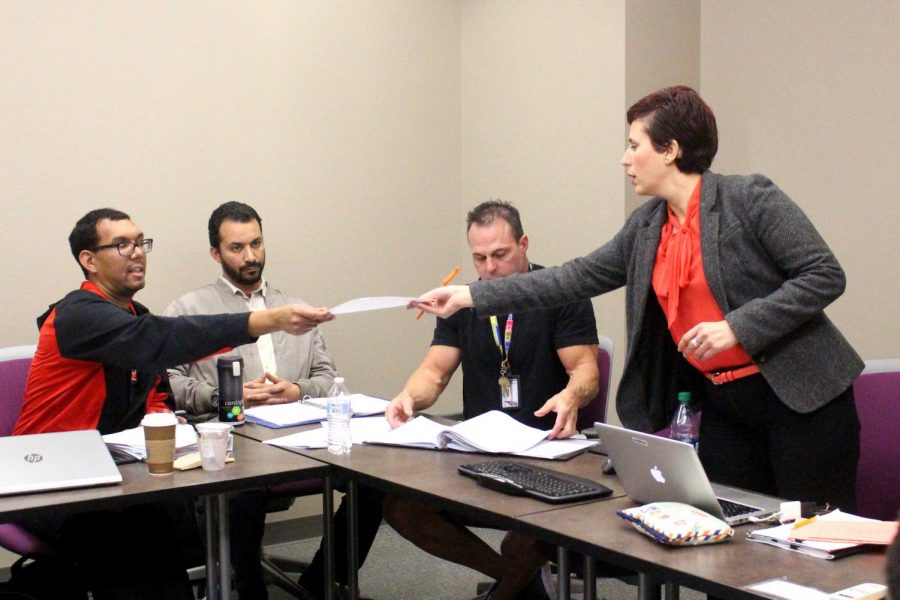Earlier this month, Oralia Loza, an associate professor in public health sciences, received one of the three 2018 Pillars of Public Health from the city of El Paso for her work and contributions to the LGBT community.
“I was really honored and flattered that they selected the work that we put together to help out the LGBT community,” Loza said.
Before arriving at UTEP in 2010, Loza was working on her joint doctorate in epidemiology and border health with a concentration in HIV, substance use and abuse from the University of California and San Diego State University.
Loza said both of the borders she has been able to work at are different, but that the El Paso border region is integrated and a “true binational borderland area.”
“I thought I knew what the border was like, but it wasn’t until I got here that I actually really experienced it so I didn’t have a clear vision what being on the border was,” Loza said.
Loza teaches biostatistics and epidemiology, and mentors students in the UTEP Master in Public Health and Interdisciplinary Health Sciences Ph.D. programs.
She is also a member of the LGBT community advisory committee, formed by state Sen. Jose Rodriguez. Loza said that being a member has allowed her to have a better awareness of the different issues affecting the community.
Kylara Leyva, a doctoral student in the College of Health Sciences, said that Loza is a very approachable professor who makes herself available to the needs of the students.
“She tells us exactly what she wants and there is no guessing with her,” Leyva said. “I’ve never felt like a question was dumb in her class because she is really understanding of the fact that we are all in very different areas of health.”
Loza said that teaching students about the importance of studying undeserved populations is one of the many ways in which students can market themselves when they graduate from college.
“It’s an amazing opportunity to influence the next generation of providers, researchers or people that are going to be working in government agencies, to have an awareness that they might not have unless they were exposed to the work that each one of us does here,” Loza said.
Loza’s research focuses on substance abuse and risk behaviors for HIV, Hepatitis C Virus and other sexually transmitted infections among high-risk populations on the U.S./Mexico border, including transgender women, persons who use drugs and migrants.
Loza is a member of the El Paso Department of Public Health HIV Prevention Program‘s Community Mobilization LGBT Core Team, where she has been working on educating the community to assist in the prevention of HIV.
She said her team started to focus on health in general because they found that there was a need for identifying LGBT-friendly providers.
“Transgender women came across providers that didn’t know how to work with them and who didn’t have the training or, in other cases, the willingness to work with them,” Loza said. “A lot of it has to do with the stigma that people have against these groups of people.”
Loza teamed up with two graduate students in the Master of Public Health Program to create the Purple Pages of El Paso, a referral list of LGBT-friendly healthcare and social service providers in El Paso.
“It went from being a PDF to becoming a website and we launched the website in 2015,” she said.
Loza said that as result of the stigma against the LGBT community, no local data has been collected to understand the health backgrounds and obstacles that this group has to go through.
“We’re building it—we have partnerships with Texas Tech, who are doing amazing work in training their future physicians on LGBT issues,” Loza said. “I think that I’ve been involved in starting a foundation to allow that kind of research to even happen here. It’s going to take a lot of work and it won’t be easy.”
Loza said that the inspiration behind her research comes from a need to bring awareness on how understudied and underserved populations are affected in terms of health.
“That comes from having a social justice foundation for the work that I do,” Loza said. “We need to study every group of people to understand the health needs of everyone.”
Follow Rene Delgadillo on Twitter @rdelgadillonews










